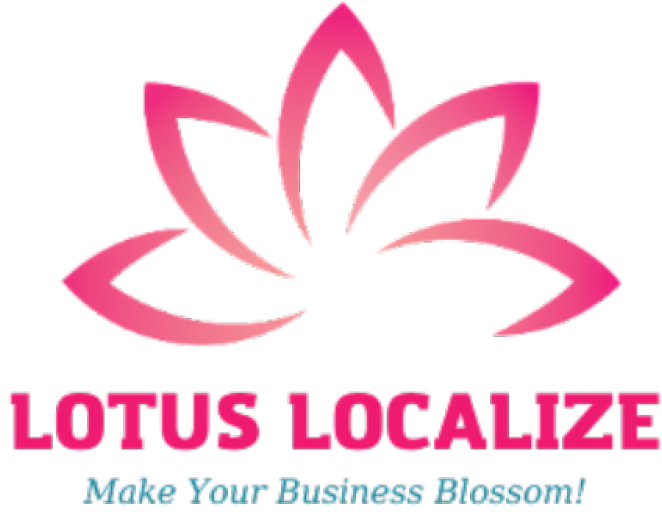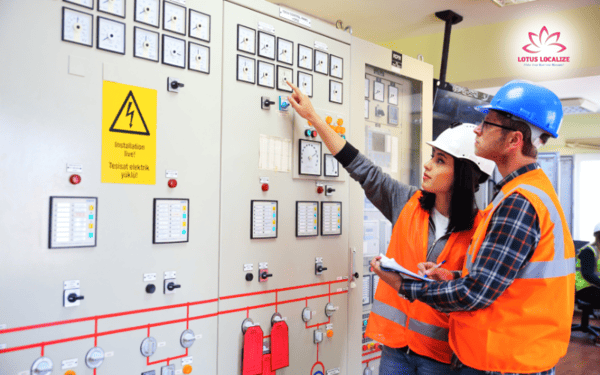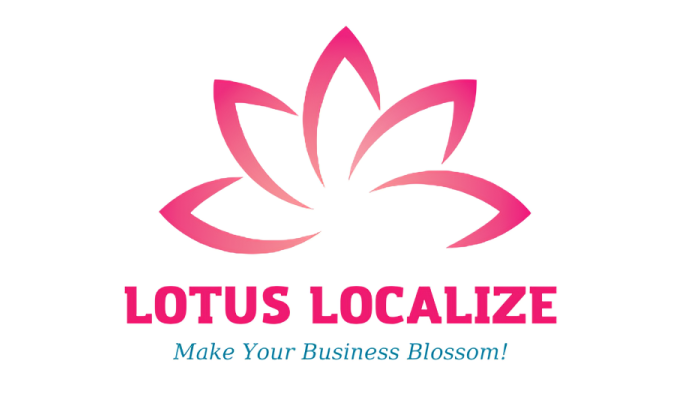
Hospital translation services: Ensuring accurate healthcare communication for diverse patient needs
Effective communication is a fundamental component of quality healthcare. In a world where hospitals serve multicultural communities, language barriers can become a significant obstacle to patient care. Hospital translation services ensure that non-English-speaking patients receive accurate medical information, reducing the risk of misdiagnosis, improper treatment, and legal complications. This article explores the importance of hospital translation services, their various types, the challenges they face, and potential solutions.
What is hospital translation?
Hospital translation refers to the process of converting spoken or written medical information into different languages to facilitate communication between healthcare professionals and patients.

Language barriers in medical settings can lead to confusion, misinterpretation of symptoms, and ineffective treatment plans. Hospital translation services bridge this gap, ensuring that patients understand their diagnoses, treatments, and medications, which ultimately improves healthcare outcomes and patient satisfaction.
Read more: Why are dental translation services crucial for global dental care?
Why every healthcare provider needs hospital translation services
Hospital translation services play a crucial role in modern healthcare by addressing communication barriers that could otherwise compromise patient safety. Some key reasons why these services are indispensable include:
- Prevent costly (and dangerous) miscommunication: Miscommunication in medical settings can lead to serious errors, such as incorrect medication prescriptions or surgical mistakes. Professional translation services reduce these risks by ensuring clarity in patient-provider interactions.
- Enhance equity in healthcare: Many patients avoid seeking medical help due to language barriers. With hospital translation services, patients from diverse linguistic backgrounds can confidently access healthcare without fear of miscommunication.

- Meet legal requirements and avoid lawsuits: Many countries have regulations that require hospitals to provide language access services to non-English-speaking patients. Compliance with these laws protects hospitals from legal repercussions and ensures equitable healthcare for all.
- Boost patient trust and satisfaction: When patients can communicate effectively with their healthcare providers, they feel heard and understood, leading to higher satisfaction rates and better treatment adherence.
- Support public health crises: In times of health crises, such as pandemics, effective communication with multilingual communities is crucial for disseminating public health information and ensuring community-wide safety.
In conclusion, hospital translation services are essential for ensuring accurate communication, equitable healthcare access, legal compliance, patient trust, and effective public health responses. By investing in professional translation services, healthcare providers can deliver safer, more inclusive, and higher-quality care to all patients.
Key types of hospital translation services
Hospitals utilize various types of translation services to cater to different patient needs. The main types include:
- On-site interpretation: On-site interpretation involves professional interpreters who physically attend medical consultations to facilitate real-time communication between patients and healthcare providers. This method ensures accuracy and is especially beneficial for complex medical discussions or sensitive procedures.
- Remote interpretation: Remote interpretation services provide real-time language support through phone calls or video conferencing. This solution is cost-effective and allows hospitals to access interpreters for multiple languages instantly, making it ideal for emergency situations and hospitals with limited in-person interpreters.

- Document translation: Hospitals generate a vast amount of written material, including medical records, consent forms, discharge instructions, and patient education brochures. Translating these documents ensures that patients fully understand their medical conditions and treatment plans, reducing misunderstandings and improving compliance.
- Sign language interpretation: For patients with hearing impairments, sign language interpretation services are essential. Professional sign language interpreters assist in medical consultations, surgeries, and emergency care to ensure effective communication between patients and healthcare providers.
In summary, hospital translation services encompass various methods, including on-site and remote interpretation, document translation, and sign language interpretation, all of which play a crucial role in delivering accurate, inclusive, and patient-centered care. By utilizing these services, hospitals can effectively bridge language barriers and enhance healthcare accessibility for diverse patient populations.
Read more: Unveiling the critical role of medical interpreters in healthcare
Challenges and solutions in hospital translation services
Despite the advantages of hospital translation services, hospitals face several challenges in implementing them effectively. Below are some of the key challenges and proposed solutions:
Managing high-demand translation requests in busy hospital environments
- Challenge: Hospitals often struggle with providing timely translation services, especially in emergency departments where quick communication is critical.
- Solution: Implementing on-demand remote interpretation services and training bilingual staff to assist in basic translations can help reduce delays and improve patient care.

Overcoming issues with rare languages and regional dialects
- Challenge: Some patients speak uncommon languages or regional dialects that are difficult to accommodate with standard translation services.
- Solution: Partnering with specialized translation agencies and leveraging artificial intelligence-driven translation tools can improve access to rare language interpreters.
Ensuring confidentiality and complying with healthcare data protection laws
- Challenge: Medical translation involves handling sensitive patient information, which must be protected according to healthcare data privacy regulations such as HIPAA (Health Insurance Portability and Accountability Act).
- Solution: Hospitals should work with certified medical translators, use secure digital platforms for document translation, and train staff on data protection best practices to maintain patient confidentiality.
In conclusion, while hospital translation services come with challenges such as high demand, rare language accessibility, and data privacy concerns, these obstacles can be addressed through strategic solutions like remote interpretation, AI-driven tools, and strict confidentiality protocols. By continuously improving translation services, hospitals can ensure equitable, efficient, and secure communication for all patients.
Best practices for implementing hospital translation services
To optimize hospital translation services, healthcare institutions should consider the following best practices:
- Employing qualified medical translators: Certified translators with expertise in medical terminology ensure accuracy in translations and interpretations.
- Integrating technology solutions: AI-driven translation tools and telemedicine platforms can enhance the efficiency of hospital translation services.

- Providing continuous training: Regular training for healthcare staff on working with interpreters and cultural competency can improve patient interactions.
- Developing multilingual patient education materials: Hospitals should proactively translate important healthcare documents into multiple languages to facilitate patient understanding.
- Establishing a dedicated language services department: Hospitals with high volumes of non-English-speaking patients should consider creating an internal department to manage language services efficiently.
In conclusion, optimizing hospital translation services requires a combination of skilled professionals, advanced technology, staff training, multilingual resources, and a well-structured language services department. By implementing these best practices, healthcare institutions can enhance communication, improve patient outcomes, and provide equitable care for diverse populations.
Trust-worthy hospital translation services at Lotus Localize
At Lotus Localize, we understand that effective communication in hospitals is essential for providing safe and accurate medical care. Language barriers can lead to misunderstandings, delayed treatments, and even serious health risks. Our hospital translation services help bridge these gaps, ensuring that patients, doctors, and medical staff can communicate clearly and effectively in any language.





By choosing Lotus Localize, hospitals can enhance patient experiences, improve healthcare outcomes, and maintain compliance with international regulations. Our dedicated team ensures that every translation meets the highest standards, allowing medical professionals to focus on what matters most—providing quality care to their patients.
Hospital translation services are an essential component of modern healthcare, ensuring that language barriers do not hinder access to quality medical care. By investing in professional translation services, hospitals can enhance patient safety, comply with legal requirements, and improve overall healthcare outcomes. While challenges exist, adopting best practices and leveraging technology can help overcome obstacles and ensure that every patient, regardless of their language, receives the medical care they deserve. As globalization continues to shape healthcare, the demand for hospital translation services will only grow. By prioritizing linguistic accessibility, hospitals can foster a more inclusive and patient-centered healthcare system.
If you have any questions or need assistance with translation services for many industries: life science translation, education translation, IT translation, financial translation, marketing translation, manufacturing translation, government translation,… and interpretation services: escort interpreting, simultaneous interpretation, remote interpretation, and localization services… please contact Lotus Localize immediately at +84 866 224 968 or visit the website: lotus-localize.com for advice on the best solutions!
QUALITY PROMISE
Lotus Localize offers consistent, high-quality service delivery in all customer engagements. Our in-house translators and staff adhere to well-established business processes, allowing us to communicate properly, deliver on time, and surpass client expectations.












